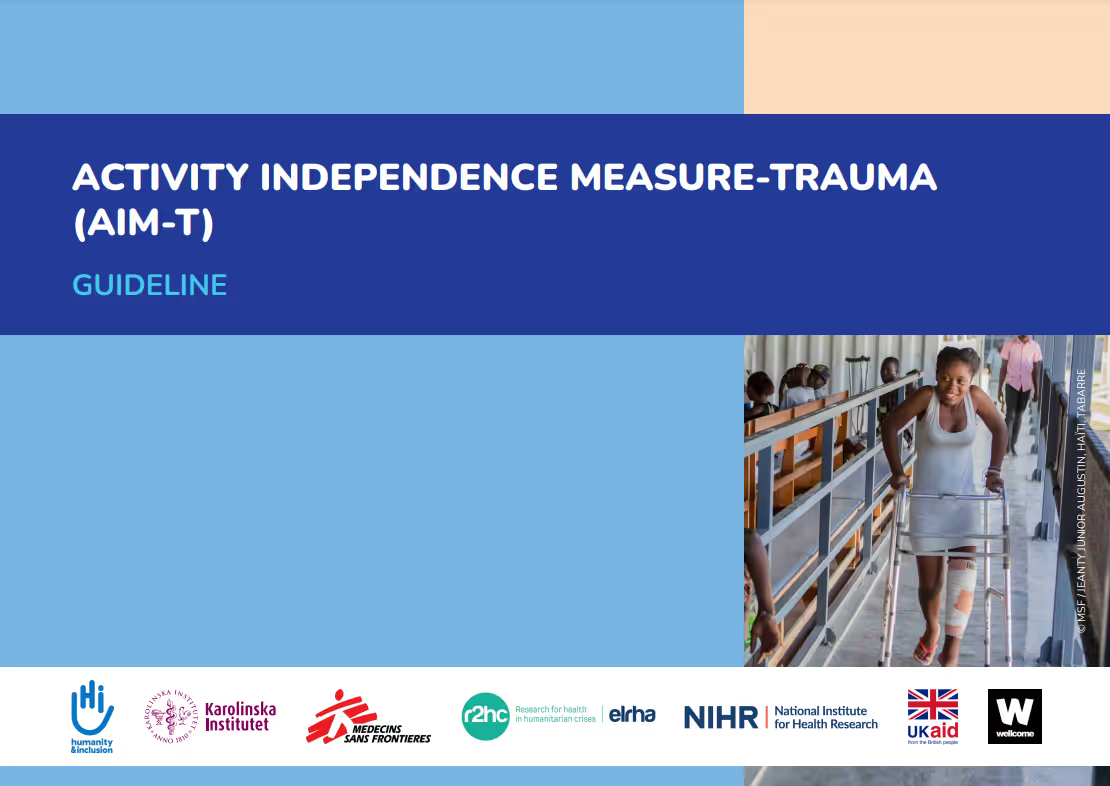Activity Independence Measure-Trauma (AIM-T) Toolkit

The AIM-T (Activity Independence Measure-Trauma (AIM-T) is a new, evidence-based clinical tool to support the rehabilitation of patients who have suffered traumatic injury. AIM-T supports health care professionals to measure patients’ independence in daily life activities.
These guidelines present the main principles driving the AIM-T, and provides detailed information on the 12 activities, the scoring system and necessary equipment. It helps professionals and leads them in using the AIM-T tool.
The pocket cards are based on the guidelines, developed for bed-side use by healthcare professionals. For each of the 12 activities, it includes an illustration and summarises key messages.
To find out more about how to use the AIM-T practitioners should visit the e-learning course on DisasterReady.
The resources and course are available in English, French, and Arabic.
About the AIM-T
- Tailored for crisis-affected contexts.
- Co-developed with Médecins Sans Frontières and Humanity Inclusion, with support of patients and staff at MSF field hospitals in Iraq, Burundi and Haiti.
- Focused on basic mobility activities - relevant for a range of cultures.
- Can be used with all orthopaedic or visceral trauma patients aged 5+ who are able to follow basic instructions, irrespective of the location of the injury.
- Validated through a rigorous methodology in collaboration with Karolinska Institutet.
[.slimline-cta-box][.slimline-cta_heading]Learn more[.slimline-cta_heading][.slimline-cta_paragraph]Learn more about the study and explore all of the AIM-T resources for humanitarian practitioners: Recovery of functioning after injury in humanitarian settings | HI[.slimline-cta_paragraph][.slimline-cta-box]